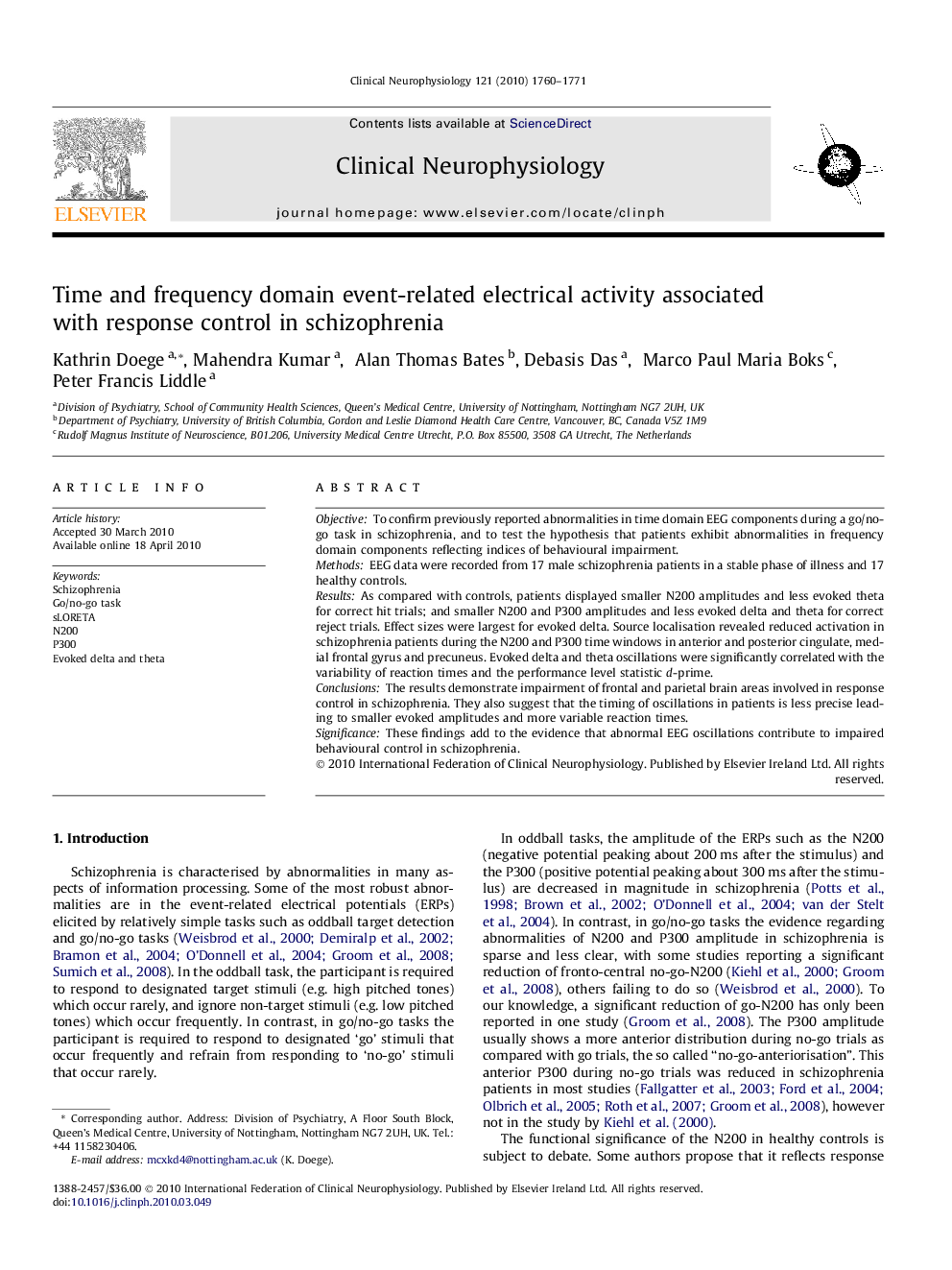| Article ID | Journal | Published Year | Pages | File Type |
|---|---|---|---|---|
| 3045127 | Clinical Neurophysiology | 2010 | 12 Pages |
ObjectiveTo confirm previously reported abnormalities in time domain EEG components during a go/no-go task in schizophrenia, and to test the hypothesis that patients exhibit abnormalities in frequency domain components reflecting indices of behavioural impairment.MethodsEEG data were recorded from 17 male schizophrenia patients in a stable phase of illness and 17 healthy controls.ResultsAs compared with controls, patients displayed smaller N200 amplitudes and less evoked theta for correct hit trials; and smaller N200 and P300 amplitudes and less evoked delta and theta for correct reject trials. Effect sizes were largest for evoked delta. Source localisation revealed reduced activation in schizophrenia patients during the N200 and P300 time windows in anterior and posterior cingulate, medial frontal gyrus and precuneus. Evoked delta and theta oscillations were significantly correlated with the variability of reaction times and the performance level statistic d-prime.ConclusionsThe results demonstrate impairment of frontal and parietal brain areas involved in response control in schizophrenia. They also suggest that the timing of oscillations in patients is less precise leading to smaller evoked amplitudes and more variable reaction times.SignificanceThese findings add to the evidence that abnormal EEG oscillations contribute to impaired behavioural control in schizophrenia.
